
Rebecca Comenale - 2015 Cohort
- Professional Title: Assistant Principal
- Years of Experience: 15+
- Capstone Research: I am studying the implementation of Capstones in high school because this is something that is timely and relevant in my current role. I plan to use qualitative methods to understand how capstones are currently implemented.

Anastasia DiFedele-Dutton – 2015 Cohort
- Professional Title: Magnet Theme Coach
- Years of Experience: 5-10
- Capstone Research: I am studying themed education (coordination, implementation, and curriculum) because relevance of themed schools is prevalent in our educational landscape today, playing into school choice. I plan to use qualitative methods to paint a picture of student and staff motivation, engagement, and achievement within and related to themed education.

Sasha Douglas – 2015 Cohort
- Professional Title: Principal
- Years of Experience: 10-15
- Capstone Research: I am studying educational leadership because I am interested in gaining a deeper understanding of organizational behavior and systems in education. I plan to use my research and readings to critically examine my own work. I also plan to seek practical leadership applications for my research.

Scott Hurwitz – 2015 Cohort
- Professional Title: Assistant Principal
- Years of Experience: 5-10
- Capstone Research: I am interested in topics dealing with school climate. To date, I have examined issues dealing with anti-bullying legislation, physical and emotional safety in schools and on buses, and student discipline issues. I look forward to continuing to examine the factors that influence sustainable positive school climate.

Gail Lanza – 2015 Cohort
- Professional Title: Director of Special Services & Early Childhood Education
- Years of Experience: 15+
- Capstone Research: I am studying the impact of strategic operating plans on overall student learning. More specifically, can small rural districts successfully use strategic operating plans to improve student performance outcomes over time given the organizational constructs of schools as loosely coupled systems. I plan to use mixed methods to understand the implementation prevalence of strategic operating plans, their fidelity of implementation, and their impact on student learning: actual, potential and perceived.

Michael Litke – 2015 Cohort
- Professional Title: Principal
- Years of Experience: 15+
- Capstone Research: I am studying the effects of high stakes testing on organizational trust. I plan to use qualitative methods to understand how leadership can maintain a safe and productive professional culture against the backdrop of high stakes testing.
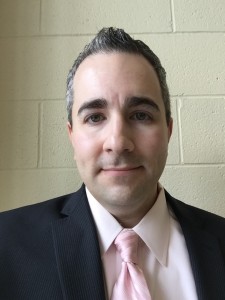
Anthony Mangiafico– 2015 Cohort
- Professional Title: Director of Adult and Continuing Education
- Years of Experience: 10-15
- Capstone Research: Why do some students enrolled in GED classes succeed and other stop attending class? I am studying motivation and perseverance in students enrolled in GED classes in urban or urban"ish" (East Hartford, Middletown, Manchester) settings. I plan to use a mixed methods study to understand why some GED students are successful and some are not.
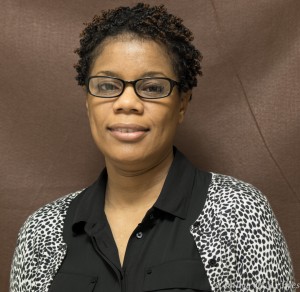
Angella Manhertz – 2015 Cohort
- Professional Title: Educational Psychologist
- Years of Experience: 5-10
- Capstone Research: I am studying the influence of disciplinary practices on student outcomes. I plan to use a mixed methods approach to understand the extent of this issue and the impact on specific students.

India Monroe – 2015 Cohort
- Professional Title: District Curriculum Specialist
- Years of Experience: 10-15
- Capstone Research: I am studying professional learning structures that school leaders can create within the building to monitor and support implementation of school/district initiatives, such as curriculum implementation. I plan to use qualitative methods to understand how the teachers' perceptions of an initiative influences the degree and quality of implementation, and/or how the building leaders' framing of an initiative influences the degree and quality of implementation.
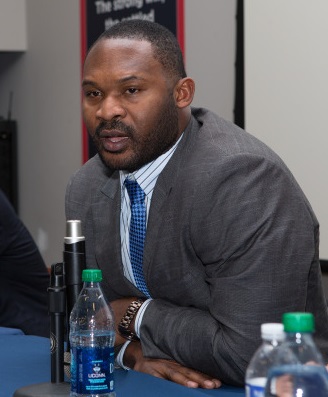
Uyi Osunde – 2015 Cohort
- Professional Title: Assistant Principal
- Years of Experience: 5-10
- Capstone Research: I'm interested in studying teacher accountability and its overall impact on the academic climate of schools.

Christina Saccoccio – 2015 Cohort
- Professional Title: School Psychologist
- Years of Experience: 5-10
- Capstone Research: I am interested in studying the state training practices of paraprofessionals. I was planning on using qualitative methods to ascertain whether paraprofessionals felt adequately trained to work with the populations of students they were assigned to.

Lisa Sepe – 2015 Cohort
- Professional Title: Intervention Specialist
- Years of Experience: 10-15
- Capstone Research: I am studying the conditions needed for principals to implement collaborative data processes. I plan to use the qualitative methods to understand these conditions.

Gretchen Unfried-English – 2015 Cohort
- Professional Title: Instructional Coach
- Years of Experience: 10-15
- Capstone Research: Despite the achievement gap, there are schools serving students in low income communities producing statistically strong academic results. In my Problem of Practice I will research what factors most impact a positive school climate, strong school culture (student and adult), and teacher/student/family satisfaction within strong academic environments. I will also focus on how school and teacher leadership sustains a strong adult and student culture and how that impacts the climate of a school.
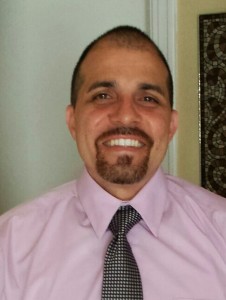
Israel Velez – 2015 Cohort
- Professional Title: Teacher
- Years of Experience: 15+
- Capstone Research: I am studying the Choice Model and how the program supports students' post-secondary education because many of these students are not continuing a post-secondary education. I plan to use qualitative methods to understand the transition of Choice Students into post-secondary education and the variables involved in this process. Also, I want to use qualitative methods to analyze the coordination of cooperative efforts to support the needs of this student population.
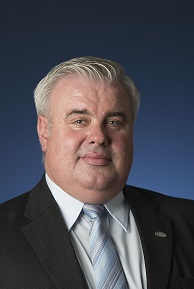
Dariusz Zdunczyk – 2015 Cohort
- Professional Title: Assistant Principal
- Years of Experience: 15+
- Capstone Research: I plan on studying the teaching certification requirements in various disciplines but particularly within the technical and vocational areas and their impact on teachers' performance and evaluation.

Dana Ziter – 2015 Cohort
- Professional Title: Academic Advisor, UCONN School of Engineering
- Years of Experience: 2-5
- Capstone Research: I am studying the issue of college campus violence and the admission process/accommodations for students with previously identified criminal or behavioral history. I hope to identify possible processes or policies to help affected students and prevent such unfortunate tragedies.